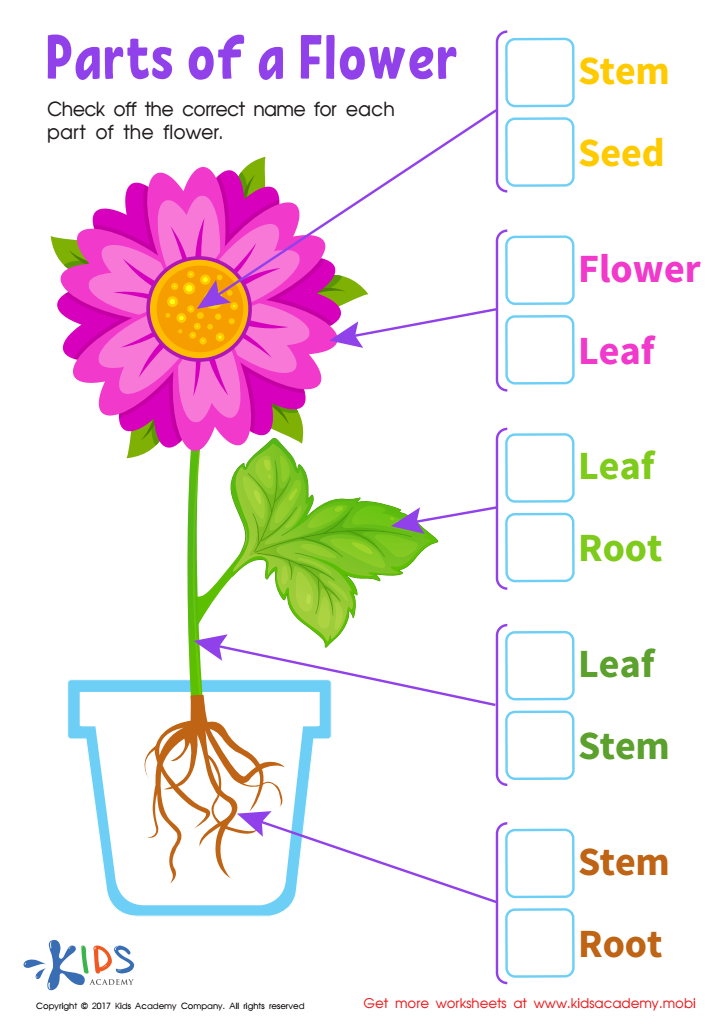Life Science Worksheets for Ages 4-8
3 filtered results
-
From - To
Discover engaging Life Science worksheets designed specifically for children aged 4-8! Our carefully crafted resources help young learners explore the natural world while developing essential skills through fun activities. These worksheets cover various topics, including plants, animals, ecosystems, and the human body, making science accessible and enjoyable. Each activity encourages creativity, critical thinking, and a love for learning. Ideal for both classroom and home use, our Life Science worksheets support early childhood education goals, fostering curiosity about the environment. Download now to inspire your child’s journey into the wonders of life science with easy-to-follow tasks and colorful illustrations.


Parts Flower Printable


Herbivores Printable


Carnivores Worksheet
Life Science is a fundamental aspect of early education for children aged 4-8, as it lays the groundwork for understanding the world around them. At this developmental stage, children are naturally curious and eager to explore their environment, making it an ideal time to introduce them to concepts in biology, ecology, and human life. Engaging with Life Science fosters critical thinking, observation skills, and a sense of wonder, allowing children to ask questions about living things, their habitats, and life cycles.
Moreover, incorporating Life Science into early education encourages a deep appreciation for nature and the interconnectedness of life, promoting environmental stewardship as they grow. It also supports cognitive development, enhancing vocabulary and improving literacy skills as children learn scientific terms and concepts.
Parents and teachers play a crucial role in sparking this interest. By being actively involved in Life Science learning, they can nurture a love for science that lasts a lifetime and helps children build a solid foundation for future academic success. Ultimately, a strong understanding of Life Science equips young learners with the knowledge and curiosity needed to tackle complex issues related to health, sustainability, and biodiversity later in life.
 Assign to My Students
Assign to My Students















